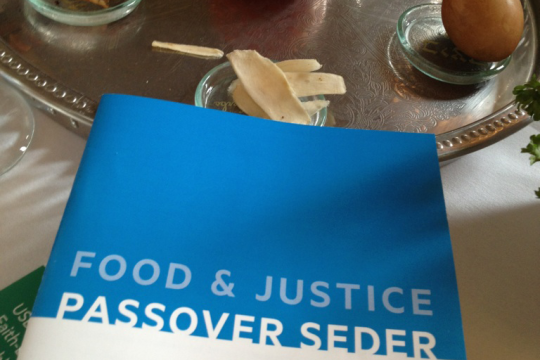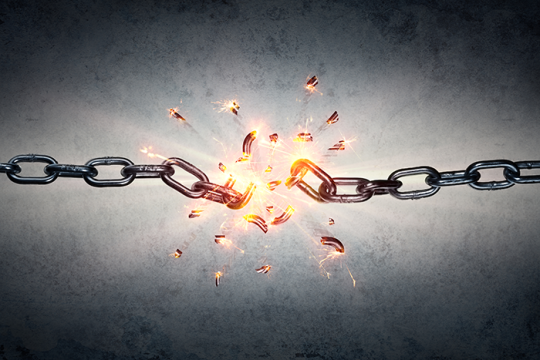Clergy, congregational staff and lay leadership play a critical role in responding to antisemitic incidents and acts of hate, serving often on the frontlines of bias incident and providing leadership, advice and reassurance in times of crisis.
To that end, amid an alarming rise in antisemitic rhetoric and violence, the Union for Reform Judaism has joined with the Anti-Defamation League, the world’s leading anti-hate organization, to develop “Responding to Antisemitic Incidents: A New Resource for URJ Communities,” a toolkit to assist congregational leaders in preparing for and responding to incidents of hate and antisemitism.
This multi-faceted digital resource provides congregations and individuals with the tools to respond to acts of antisemitism and hate in their communities, linking to the expertise of the ADL and the network of the URJ to better equip Jewish leaders to respond to and prevent harmful attacks.
Why This Resource Matters
Antisemitism is the marginalization and oppression of people who are Jewish (or are perceived to be Jewish) based on the belief in stereotypes and myths about Jewish people, Judaism and Israel. Parallel to all systems of oppression, antisemitism manifests as the dehumanization or exploitation of, or discrimination or violence against, Jewish people based on stereotypes and disinformation.
Like all systems of oppression, antisemitism is more than the sum of interpersonal prejudice or isolated violent incidents. It shares with other forms of oppression certain characteristics such as discrimination and stereotyping. And Jewish people who have multiple marginalized identities (People of Color, people with disabilities, and members of the transgender community) are disproportionately impacted by violence and discrimination.
Increases in antisemitic incidents often correlate with upticks in other forms of hate and bigotry. In order to create truly inclusive spaces for all Jews, we must consider how racism, sexism, ageism, ableism, xenophobia, anti-LGBTQ+ bias and other forms of oppression intersect with antisemitism and impact members of the Jewish community in different ways.
Particularly given the breadth and depth of our own community’s makeup, we recognize that no one community is safe until all marginalized communities are safe.
When to Use This Resource
The ideal time to familiarize yourself with this resource is before your community needs this resource. Though many of the concepts outlined and discussed within this resource are evergreen and of perpetual relevance to Jewish communities across North America, they are not simply theoretical. Rather, this resource contains practical, pragmatic, in-the-moment guidance, from checklists to contact information to other on-the-ground logistical information, all designed to support you in times of crisis.
Implementing preventative strategies and making proactive plans to respond to incidents is essential. Therefore, we strongly encourage you to review this resource throughout the year and to review and update your congregation’s safety plans annually to ensure that professional and lay leadership understand their roles and your protocols regarding incident response — before a bias incident occurs.
How to Use This Resource
To ensure that this resource is as useful as possible to you, we’ve highlighted specific sections that may be useful to you in your particular congregational role. We hope you will take the time to read this resource in its entirety but with special focus on the individual sections of particular relevance to your position within your congregation and community.
If You’re Clergy and/or an Educator…
The following segments of the URJ/ADL resource will be especially helpful to rabbis, cantors and congregational educators.
- Criticism of Israel: Antisemitism? (page 10)
- Community Incidents (page 14), specifically:
- School Administration (page 17)
- Stabilizing the Situation and Supporting Targets and Victims (page 23)
- Communicating Quickly and Clearly (page 26)
- Resources To Educate and Empower Your Community (page 29 – specifically helpful for educators)
- Community Healing (page 32)
- Turning to Religious Texts for Support (page 33)
- Activating Allyship and Advocacy (page 36)
- Incidents By Type (page 37)
If You’re an Executive Director…
The following segments of the URJ/ADL resource will be especially helpful to individuals in the role of executive director.
- Who Makes Up The Jewish Community (page 8)
- Community Incidents (page 14), specifically:
- First responders and law enforcement (page 15)
- Communal Security Organizations (page 16)
- Create A Community Safety Committee (page 17)
- Security Plan and Procedures (page 21)
- Documenting The Incident (page 25)
- Communicating Quickly and Clearly (page 26)
- Incidents by Type (page 37)
If You’re a Temple President or Other Board Member…
The following segments of the URJ/ADL resource will be especially helpful to individuals serving as temple president or in other board positions.
- Who Makes Up The Jewish Community (page 8)
- Criticism of Israel: Antisemitism? (page 10)
- Community Incidents (page 14), specifically:
- Create A Community Safety Committee (page 17)
- Stabilizing the Situation and Supporting Targets and Victims (page 23)
- Communicating Quickly and Clearly (page 26)
Recognizing that all congregational leadership structures differ in size and roles, we urge you to share this resource with those in your congregation who hold positions not mentioned here, as times of crisis require each of us to call on our unique strengths and skills as we come together, as a community, to combat hate.
Download “Responding to Antisemitic Incidents: A New Resource for URJ Communities” now. If you or a congregant have experienced or witnessed an incident of antisemitism, extremism, bias, bigotry or hate of any kind, please report it to ADL at adl.org/reportincident-urj.
Related Posts

Passover 2024: The Three Central Messages of Pesach

Modern-Day Plagues of Injustice and Inequality
